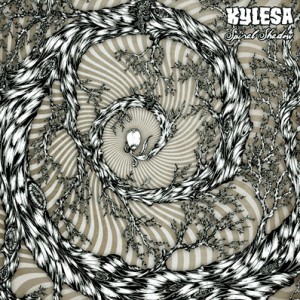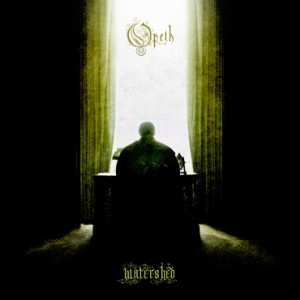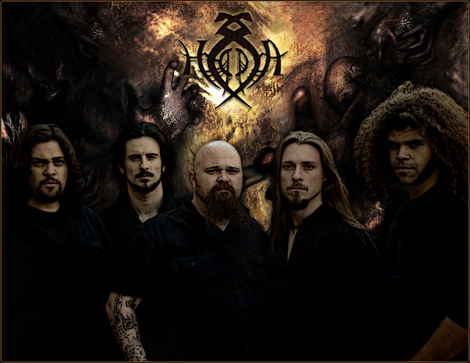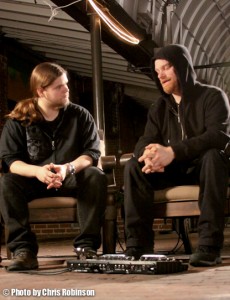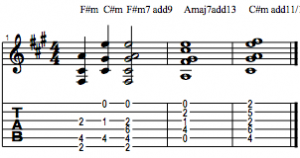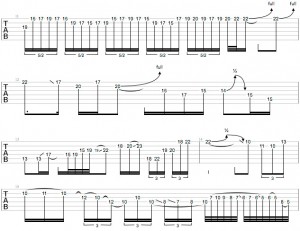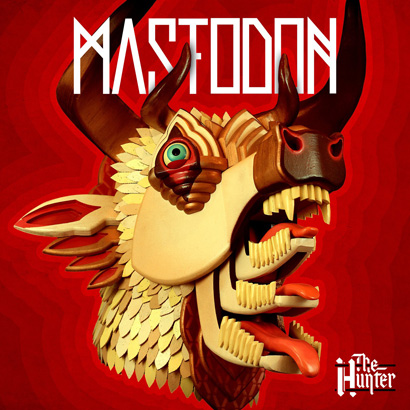 Mastodon set the bar dizzyingly high with 2009’s Crack the Skye. Following a trio of element-themed records, their ‘air’ album married brutal riffs and brain-melting production with themes of astral projection, Rasputin’s possession of a crippled boy’s soul, and the fall of Tsarist Russia. But the announcement of their follow-up album The Hunter came with a trio of concerns. 1: How could they possibly top the iron-knuckled, vision quest that was Crack the Skye? 2: Why the hell is Dr. Dre’s bass player and Maroon 5’s producer Mike Elizondo manning the mixing board? And 3: What would the theme be now that they’d run out of elemental subjects from which to draw inspiration?
Mastodon set the bar dizzyingly high with 2009’s Crack the Skye. Following a trio of element-themed records, their ‘air’ album married brutal riffs and brain-melting production with themes of astral projection, Rasputin’s possession of a crippled boy’s soul, and the fall of Tsarist Russia. But the announcement of their follow-up album The Hunter came with a trio of concerns. 1: How could they possibly top the iron-knuckled, vision quest that was Crack the Skye? 2: Why the hell is Dr. Dre’s bass player and Maroon 5’s producer Mike Elizondo manning the mixing board? And 3: What would the theme be now that they’d run out of elemental subjects from which to draw inspiration?
The answers are, respectively, 1: By breeding an altogether different beast. 2: Because not only does Dr. Dre have some of the sickest grooves ever laid to tape, but Maroon 5 can put together a solid song that’s under four minutes long. And 3: They didn’t run out of elements, stupid. With The Hunter, Mastodon is mining the most foundational musical element of the past fifty years: Beatlemanium.
If Crack the Skye was Mastodon’s Sgt. Pepper’s with its sprawling, drugged-out explorations of identity and the divine, then consider The Hunter to be their Revolver: a lean, mean sampler of a band at the height of their collaborative efforts. The ghost of the Fab Four inhabits a matured sense of melody and arrangement. Guitar lines become precursors to vocal melodies as on the title track where guitarist and singer Brent Hinds even paraphrases ‘The End’ when he sings ‘All the love I make/is equal to the love I take.’ The lyrical allusions continue with the curiously titled ‘The Octopus Has No Friends’ and its suggestion ‘Let’s rest a while in the cave.’ Even the 50’s horror-inspired hymn ‘Creature Lives’ sounds like an ode to the Swamp Thing penned by John Lennon.
While it’d be wrong to call The Hunter Mastodon’s ‘pop’ album, the album is far and away the band’s most accessible. They haven’t sold their souls for top 40 hits as much as gathered their best visages of their multi-faceted sound and seamlessly stitched them together into a beastly mug that leers hungrily in Katy Perry’s worst nightmares.
The guitar work is both dazzling and efficient, serving each song without sparing the savagery. The riffs initially hit like debris off Blood Mountain, but where that record was raw, fast, and bristled, the approach of The Hunter is more measured and composed, so much so that it could’ve been called The Chef. Solos are scant, but the time is outsourced to meaner devices. The twin-guitar attack that defined their sound with more open quartal harmonies is employed to familiar use on ‘Thickening,’ recalling the break to ‘Blood and Thunder,’ while more Maiden-influenced tertian lines elevate ‘All the Heavy Lifting’ off the ground. Their open-string hammer-on acrobatics have never been so agile, nor have they landed so cleanly into brooding down-tempo riffs as on ‘The Octopus Has No Friends.’ And to sever the above Beatle’s analogy, drummer Bränn Dailor is no Ringo. Thrashing limbs akimbo like the titular cephalopod of the latter song, he represents the gold standard of modern rock drumming, capable of compressing an entire jazz solo into a two beat singularity.
With a swagger like a yeti in a three-piece suit, ‘Curl of the Burl’ brandishes a cooler groove than ‘Iron Tusk.’ Lyrically, it’s Scissorfight on meth (Crack rock the skye?) and a deft display of how the band’s vocals have finally gelled into a cohesive unit thanks to playing Crack the Skye front to back live for a straight year. In the past, with every member often contributing vocals (and Blood Mountain’s smattering of guest spots), their vocal identity has long struggled to jump fully-formed from their throats.
| ‘Curl Of The Burl’ music video. |
But on tracks like ‘Curl of the Burl’ and ‘The Hunter’ Troy Sanders’s bellow and Brent Hinds’s nasal bray take turns as the burn and the aloe, lending an epic contrast to shorter songs. Bränn Dailor’s pipes lead ‘Creature Lives’ and when the three unite in harmony on the refrains for ‘Blasteroids’ and ‘Stargasm,’ it’s enough to give chills. ‘Dry Bone Valley’ even splits the vocal duties three ways. In their younger days, the trio might’ve resulted in some awkward posturing, but here each voice finds its form-fitting position. The band’s instrumental devices have long operated as a mean metal machine and only now do the operators truly find a voice to match.
With almost twice as many tracks as Crack the Skye and a running time ten minutes shorter (not a single song breaches five and half minutes), The Hunter fires off more rounds without ever missing the mark. Crack the Skye began with ‘I flew beyond the sun before it was time,’ a hubristic call far beyond the brutal self-flagellation with which Sanders ushers in The Hunter: ‘I burned out my eyes/I cut off my tongue.’ But regardless of whether Mastodon has robbed itself of the ability to see or speak evil, at least the evil genius of their wicked ways is still readily heard.
What’s perhaps most impressive about The Hunter as a summation of Mastodon’s journey is just how far they’ve lumbered from their stoner-sludge roots. They’ve wholly legitimized a sub-genre of metal that, at the time of their turn-of-the-century inception, had seemed to become a stagnant joke. As Kyuss disbanded and the Melvins began dabbling with more dubiously ambient explorations, Mastodon dredged the fossils from the tar pit and breathed into them a new life. With fellow Georgians Black Tusk, Baroness, and Kylesa now making seismic waves on the tour circuit, and with new tour mates Red Fang echoing their call from across the country, down-tuned blues riffs have become not just a revalued currency, but a legal tender with which to bankroll new forays into progressive metal. Mastodon has proved that blues-based metal remains a wholly amorphous entity which a band of their caliber can form and re-sculpt to their own deliciously twisted shape.




